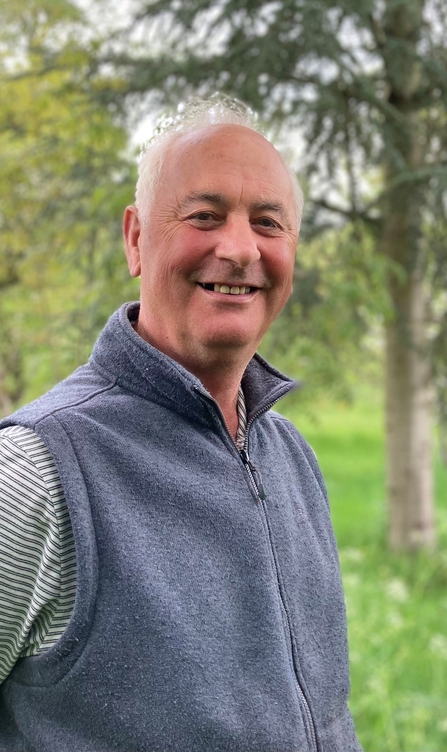Today, Professor Alastair Fitter receives the prestigious Cadbury Medal from The Wildlife Trusts in recognition of 50 years of service to nature conservation and the instrumental role he played in saving Yorkshire's natural crown jewel, Askham Bog.
Askham Bog was originally purchased by the famous sweet manufacturers Francis Terry and Arnold Rowntree, and given to the Yorkshire Wildlife Trust as a gift. Now the hero of the bog is being honored in the name of another famous confectionary family.
Fitter’s expertise was pivotal to Trust’s successful campaign to save the reserve from the impact of a proposed housing development, during which Alastair put in over 400 hours’ work to bring his formidable knowledge of the nature reserve’s flora, fauna and hydrology to bear.
Despite its small size, Askham Bog is the richest place in Yorkshire for wildlife – and is the founding reserve of the Yorkshire Wildlife Trust. Only minutes from the centre of York, it's a haven for wildlife and people alike. Many a university student has enjoyed jumping with Fitter to feel the bounce of this special peat bog.
His father, Richard Fitter, was awarded the Cadbury Medal in 1998 for his support of Berkshire, Buckinghamshire and Oxfordshire Wildlife Trust. Richard Fitter, acclaimed author of many natural history guides and exceptional all-round naturalist, was famed for his 50-year study into the flowering times of plants. At the time, it was the biggest analysis of the impacts of climate change on the natural world, shaping understanding to this day.
Alastair credits his father’s enthusiasm for his own success, and notes the crucial work of amateurs, and volunteers, like Richard, in scientific nature recording. To this end, Alastair Fitter’s two sons are now avid moth recorders, contributing to the records of the 800 different moth species recorded at their father’s favourite place – Askham Bog.
Professor Alastair Fitter says:
“My father’s pocket guides are one reason that so many people can access and understand nature – something which is paramount to taking action for our beautiful, but struggling, natural world. My hope now is that conservationists and naturalists, no matter how much expertise they have, work together for our common goal. After all, you can’t conserve what you don’t know about, and you cannot know about what has not been conserved.
“Anything I've ever done has been in a team. I'm not sure I have ever done anything particularly remarkable, but if we work together, remarkable things happen.”
Alastair, head of biology at the University of York, was elected Fellow of the Royal Society (FRS) in 2005, appointed Commander of the Order of the British Empire (CBE) in the 2010 New Year Honours for services to environmental science, and has received a President's Medal from the British Ecological Society.
Rachael Bice, chief executive of Yorkshire Wildlife Trust, says:
“Alastair’s unwavering dedication to conservation and environmental science for over half a century has deeply enriched the work we are able to do protecting and restoring wildlife across Yorkshire. He has helped us to discover and nurture long-lost species at Askham Bog and beyond, advised on our ambitions for nature’s recovery and been a hardworking and deeply respected voice and advocate for nature, inspiring the next generation of naturalists.
“This award is so richly deserved and we are absolutely delighted that his contributions to a wilder world have been recognised.”
Today, The Wildlife Trusts honour a special group of individuals who have made exceptional contributions to UK nature conservation through the Marsh Awards. Additionally, the Dame Mary Smieton Award highlights a Wildlife Trust project that has significantly advanced equality, diversity, and inclusion within the sector.
Craig Bennett, chief executive of The Wildlife Trusts, says:
“Huge congratulations and even greater thanks to all of the brilliant volunteers, staff members, and projects which are helping precious wildlife to recover. Without the persistence of these nature heroes, bog saviours and sea searchers, our towns and wild places would be greyer and duller. I’m delighted that today’s awards show how much we appreciate these wonderful people and rightly recognise the value of these fantastic changemakers.”
The Wildlife Trusts are delighted to announce:
- The Dame Mary Smieton Award – went to Skomer & Skokholm Accessible Boat Trips at The Wildlife Trust of South and West Wales for efforts towards equality, diversity, and inclusion.
- The Marsh Charitable Trust Leadership and Innovation in Nature Restoration Award – went to John Durnell at Hampshire and Isle of Wight Wildlife Trust for his work in uplifting the awareness and application of nature-based solutions.
- The Marsh Charitable Trust Unsung Hero Leadership Award – went to Gemma Walker of Norfolk Wildlife Trust for her 20 years of dedication to connecting communities in Norfolk to nature.
- The Marsh Staff Award for Outstanding Public Engagement – went to Fee Worton at Leicestershire & Rutland Wildlife Trust for her work with underserved communities in Leicester as part of the Nextdoor Nature project.
- The Marsh Staff Award for Outstanding Team-work – went to Louise Morris of Staffordshire Wildlife Trust for her work leading the pioneering landscape recovery project – Transforming the Trent Valley.
- The Marsh Volunteer Award for Marine Conservation – went to Mary Ledlie for her tireless undertaking of Seasearch surveys in Cornwall.
- The Marsh Volunteer Award for Marine Conservation – went to Hampshire and Isle of Wight Wildlife Trust Marine Volunteers for their invaluable research, recording, and outreach work in and around the Solent.
- The Marsh Volunteer Youth Award for Marine Conservation – went to Cat Bell who has been fitting in Shoresearch surveys, public engagement, and even social media content creation around her GCSEs.

